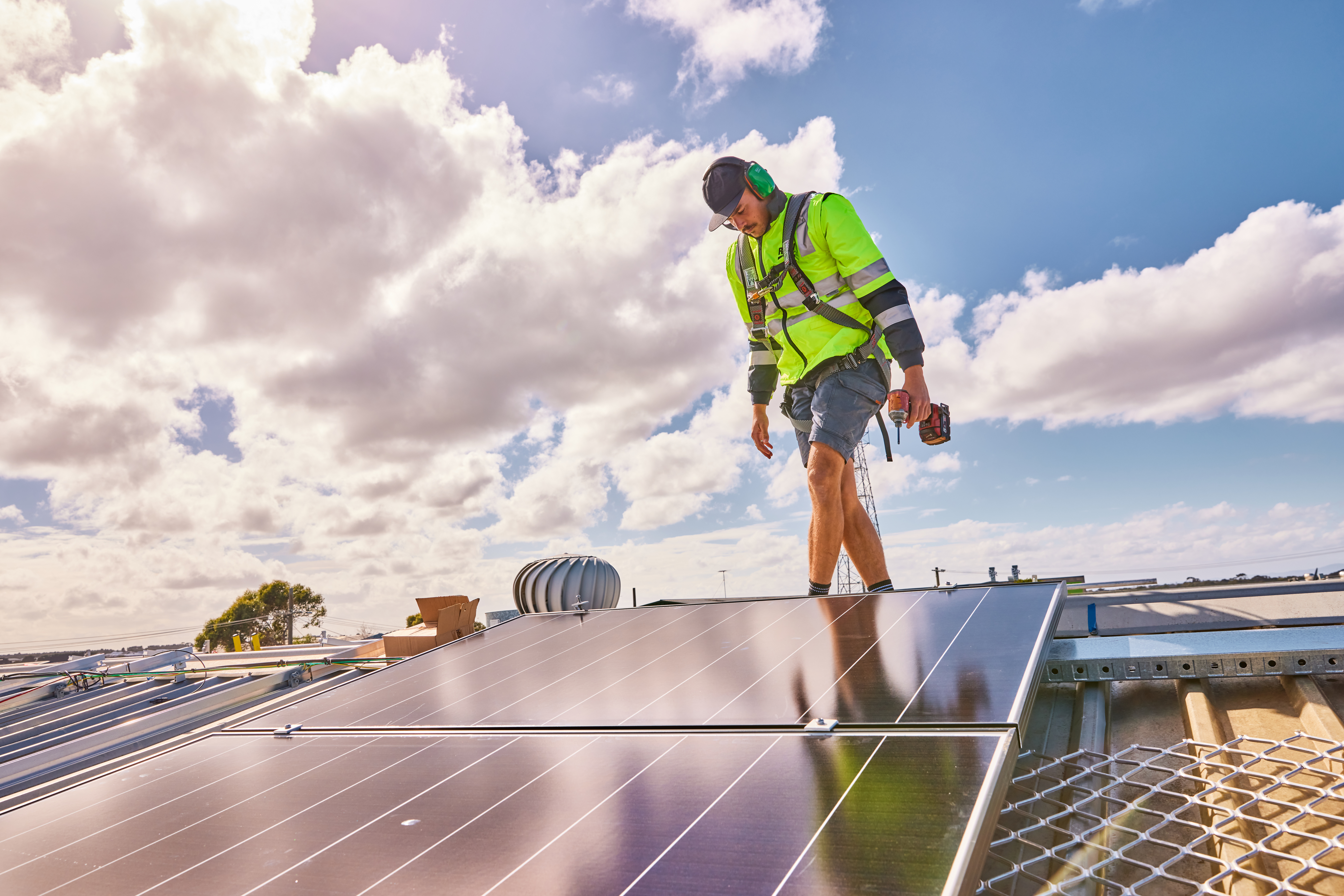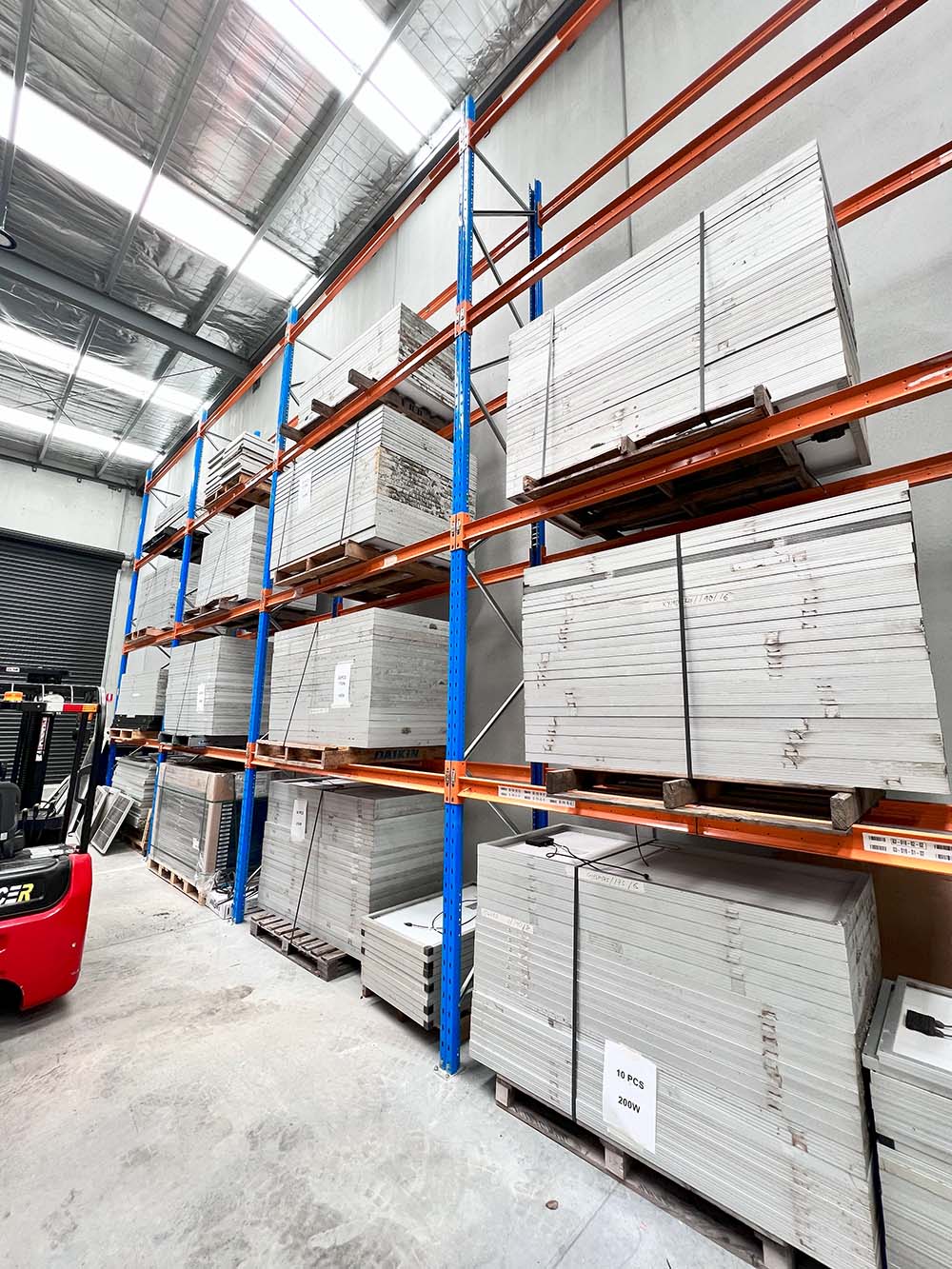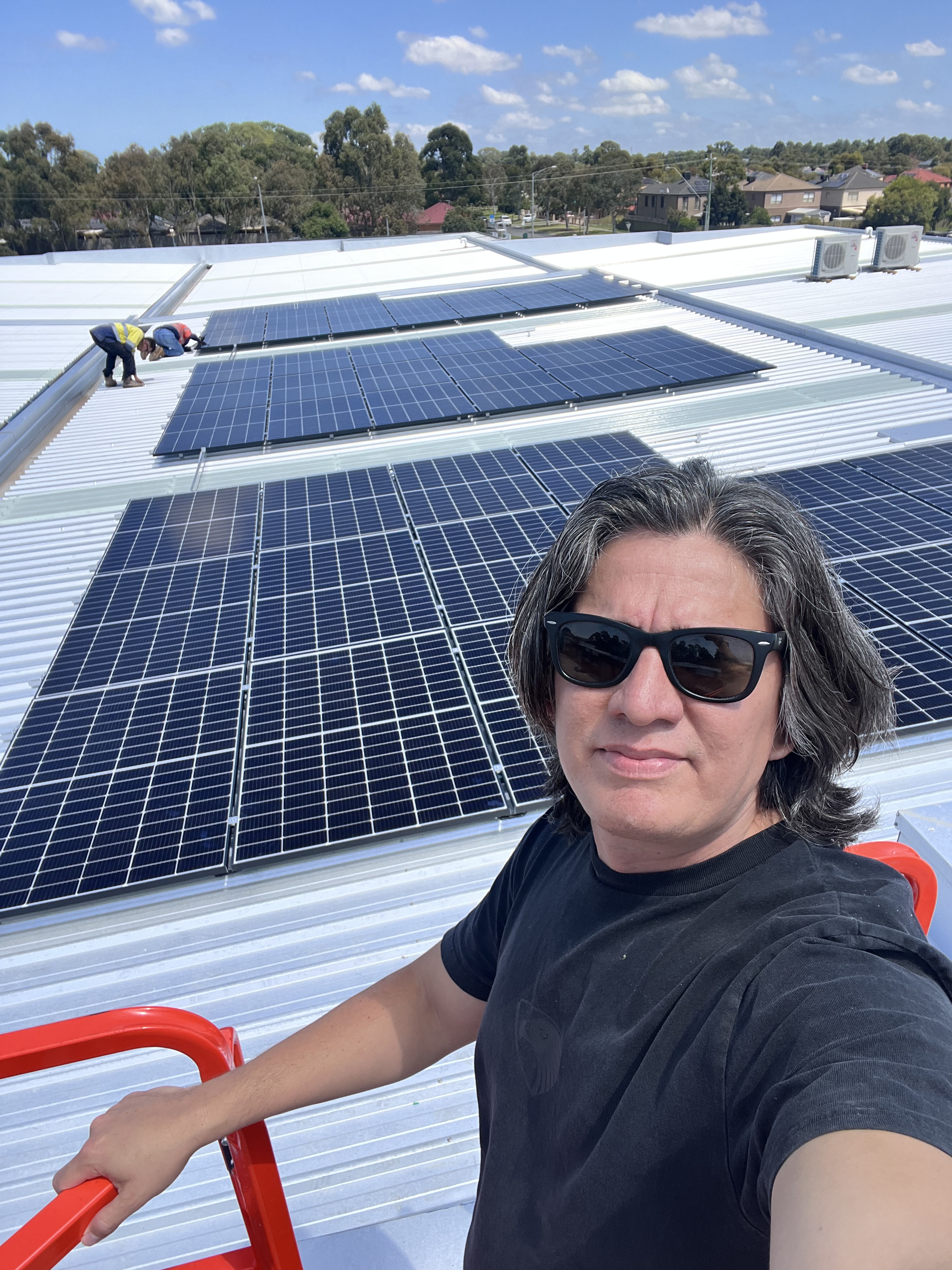Many countries, including Australia, are accelerating their transitions to clean energy. That means more solar panels, more wind turbines, more of everything we need to build the infrastructure that will secure a zero-carbon energy system.
Alongside that development comes a responsibility to ensure the industry is managed responsibly and sustainably. That can take many forms, from minimising environmental and biodiversity impacts to ensuring the transition is equitable for all, including local communities and Traditional Owners.
One crucial element of sustainability is product stewardship, i.e. making sure the products and components used in the energy transition make minimal environmental impact, including at the end-of-life stage. There is already a need for improved product stewardship in the renewables sector and that need will only grow as the industry expands.
While solar panels are designed to have a 30-year lifespan, the average operational time is 15 years. This is due to a range of factors including the common practice of removing and replacing entire systems, incentives favouring installation of a new system over the repair of an existing one, and the shorter lifespan (10-15 years) of solar inverters.
The early retirement of solar panels is forecast to create nearly 8.1 GW of fully serviceable solar panels at risk of disposal over the next 10 years. That is just under the equivalent of all systems installed in Australia between 2021 and 2023 (8.9 GW). This growing problem indicates the need for innovative solutions to lengthen the operational lifespan of Australia’s solar panels.
We spoke to Ali Zeerak, Founder and Managing Director of Supply Solar, about his company’s approach to recycling Australian solar panels.

"I envision an industry where solar energy is not only the dominant form of power, but also a driving force behind a more equitable society."Ali Zeerak, Founder and Managing Director, Supply Solar

Responsible practice
Supply Solar emerged from a desire to address the challenges of affordability and sustainability in solar energy adoption. As well as being an accredited seller of rooftop solar, it works with Australian and international partners to collect, refurbish, and redistribute solar panels, as well as recycling damaged or end-of-life panels.
“The idea of utilising old solar panels dawned on me during my work in the solar sector,” says Zeerak. “I noticed that the high cost of new panels posed a significant barrier for impoverished communities to adopt solar energy. By repurposing old solar panels, not only can we provide a more affordable option for communities to access clean energy, we can contribute to reducing environmental harm.”
Part of the inspiration for the recycling side of the business came from a visit to a recycling centre in Australia, says Zeerak, where hundreds of unwanted solar panels were being abandoned.
"Shockingly, over 90 per cent of those solar panels were reusable," says Zeerak. "Not only that, but they had primarily been left there by installers and solar retailers who were paying for disposal. I saw a critical need for increased awareness among retailers and installers. Most probably don’t realise there are options where they don’t have to pay to dispose of panels in good working condition.
"It’s imperative we spread the message throughout the industry to encourage responsible disposal practices and maximise these valuable resources."
According to Zeerak, not only are businesses potentially spending money they don’t need to, they are also missing out on a chance to enhance their reputations as environmentally conscious businesses, appealing to eco-conscious consumers.
"By participating in recycling programs that offer payment or cost-free disposal options for usable panels, [these companies] can reduce overhead costs and potentially generate additional revenue," says Zeerak.
Less waste, more regulation
It’s not just businesses contributing to abandoned solar panels, either. As the rooftop solar sector grows, and efficiency improves, often customers are replacing solar systems on their properties or businesses with more advanced or efficient systems, meaning many solar panels are entering the waste stream much earlier than they need to.
There is currently no program in place in Australia to regulate the resale and re-installation of second-hand solar panels. Before the backlog of end-of-life and reusable panels grows to an insurmountable size, action needs to be taken.
"Supply Solar stands out in Australia for its unique approach to exporting solar panels under the ‘used solar panels’ category," says Zeerak. That distinction sets it apart from other companies which may categorise them as scrap metal or similar, overlooking potential for reuse.
"Australia’s progress in adopting the serious recycling of panels may lag behind some others due to various factors such as regulatory frameworks, industry practices, and public awareness. We’re hoping initiatives like those undertaken by Supply Solar are helping to drive positive change and pave the way for more widespread adoption of recycling practices."
The Australian Government's highly anticipated regulatory scheme to reduce waste from solar photovoltaic systems is currently underway and will hopefully serve as a turning point for the industry's handling of solar panel waste.
International development
The panels reused by Supply Solar don’t just stay in Australia. The company has a program which exports many of these panels for use in low-income areas overseas, where communities cannot afford to embrace clean energy. Recipients include communities in Afghanistan, Indonesia, Malaysia and others.
"We work closely with our partners in these regions to ensure the panels are used in environmentally responsible ways that contribute positively to communities," says Zeerak. "We cannot control every aspect of how the panels are utilised once they leave Australia, but we prioritise working with reputable partners who share our commitment to sustainable and ethical business practices."
Over the years, Ali has heard numerous stories of how repurposed solar panels have been used to, for examples, provide clean energy access to remote communities, support educational initiatives, and drive economic development in underserved areas.
"These outcomes reaffirm my belief in the value of repurposing panels as a means of fostering sustainable development and improving quality of life for people around the world," says Zeerak.
A circular, solar economy
One of Zeerak’s objectives is to establish a recycling plant where broken or damaged panels can be responsibly dealt with, ideally with no charge to customers.
“I envision an industry where solar energy is not only the dominant form of power, but also a driving force behind a more equitable and resilient society,” says Zeerak.

It will be essential going forward that companies like Supply Solar work with governments at local, state and federal levels to enact meaningful change. For the renewables industry to mitigate as much of its environmental impacts as possible, product stewardship must be part of the deal.
It’s a future the vast majority of project developers are looking forward to as well, and hopefully the commencement of two new environmental agencies by the Federal Government in 2025 will contribute to more research and progress in this and other areas.
The Australian Government's highly anticipated regulatory scheme to reduce waste from solar photovoltaic systems is currently underway and will hopefully serve as a turning point for the industry's handling of solar panel waste. The Circular Economy Ministerial Advisory Group, established in February 2023, will continue to provide support on the Government’s transition to a circular economy, with the recent budget providing an additional $23 million to develop circular policies and programs. Industry is looking forward to the development of a new national circular economy framework and hopefully the Government will consider additional funding for the circular economy.
To date, only Victoria has banned the disposal of solar panels to landfill. It has recently announced that participation in the Solar Homes Program requires retailers to be responsible for the removal and end-of-life management of solar panels, reinforcing the importance of services such as Supply Solar to ensuring the lifespan of usable panels can be extended.
"Collaboration with policymakers and regulatory authorities is crucial to enabling an environment for responsible waste management," says Zeerak. "We will advocate for policies and incentives that encourage the adoption of sustainable practices such as incentivising solar panel recycling programs and promoting the use of recycled materials in new solar installations.
"By doing that, we can benefit the environment and the communities we serve."
For more information on Supply Solar and its activities, click here.
To read a recently published Clean Energy Council op-ed on solar recycling, head to page 50 of the August 2024 edition of Ecogeneration magazine, or check out our wind recycling guide, released in 2023.